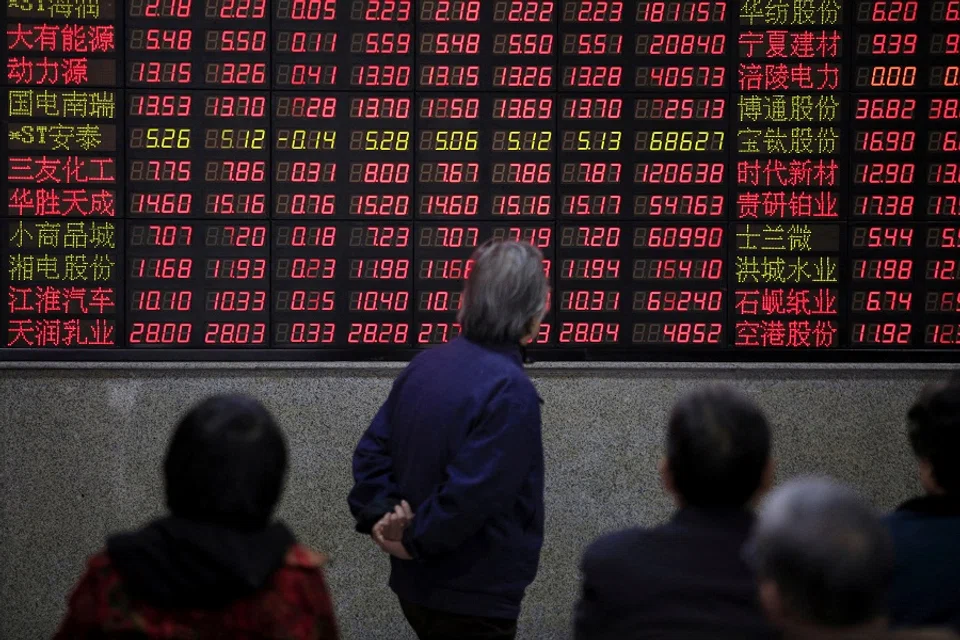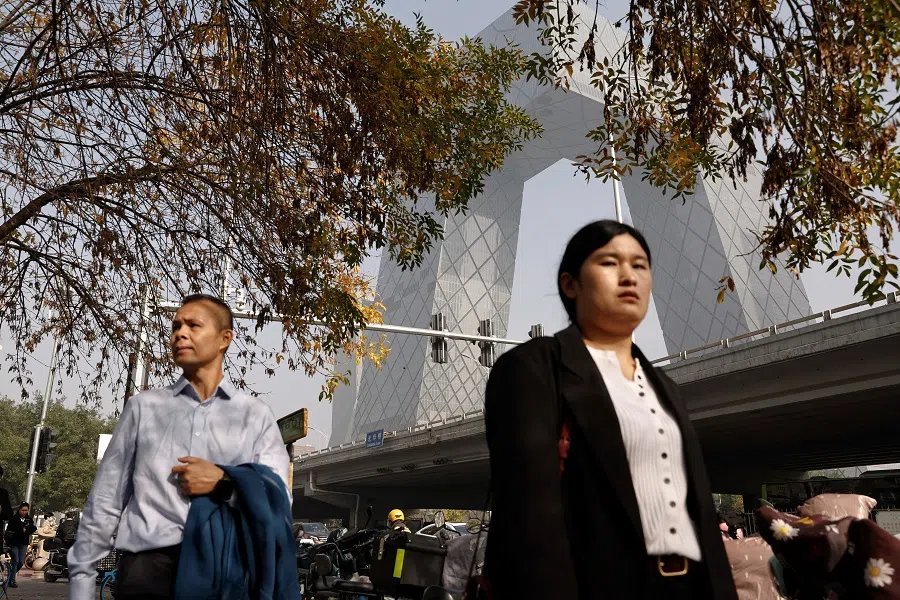Decline in FDI may not mean investment flight from China
While the narrative of de-risking and reshoring is popular in the media, there is little evidence that firms have left or are leaving China en masse, says China research analyst Chen Long. The decline of FDI could be due to the simple fact that China's interest rates are now much lower than those in most developed countries, thus making more sense for some foreign firms to move their retained earnings back home. That said, alarm bells should ring in Beijing, as efforts to stabilise foreign investment have yet to succeed.

China's balance of payment data for Q3 shows that the country faced a surge of net capital outflow. Foreign inflow dried up while outbound investment remained high.
Data published by the State Administration of Foreign Exchange (SAFE) shows that China's capital account had a deficit of US$101 billion in Q3, the second largest in seven years, only behind Q3 2022.
The complete breakdown of the capital account will not be published for another month, but the preliminary data shows that the bulk of net outflow came from direct investment, which saw a net outflow of US$65.8 billion, the largest ever. Direct investment counts large-sum investment by firms that involve management operations.
The net outflow of direct investment is partly because China's outward direct investment (ODI) rose to US$54 billion in Q3, the largest amount in seven years, as Chinese firms more actively looked for opportunities and resources in other countries.
Serious decline in FDI
The more surprising development is that foreign direct investment (FDI) into China fell to -US$11.8 billion in Q3. FDI has indeed been shrinking since 2022, as foreign firms' profits have fallen, and many have paused new investments in China. But this is the first time that a negative figure has been printed.
The FDI only has two components: intercompany borrowing and equity investments (the bulk). Thus, the decline means that foreign firms in aggregate withdrew equities from their subsidiaries in China, most likely in the form of remitting retained earnings (profits made in previous years), and possibly also in the form of Chinese subsidiaries paying back loans to their parent companies.
The way that SAFE tracks FDI makes it easier for the FDI data to rise than fall. For instance, if a foreign firm makes US$100 profit and retains it in China, SAFE will calculate FDI as having risen by US$100, even without any new investment. If the firm makes a new investment of another US$100 in China on top of its US$100 profit, SAFE will consider FDI to have increased by US$200. Even if the firm does not make any new investment and withdraws US$60, SAFE will still report FDI as having risen by US$40.
This methodology means that the money pulled out of China in Q3 was much more than US$11.8 billion, because foreign firms as a whole were still making profits and some still made new investments.
... there is little evidence that firms have left or are leaving China en masse. In fact, firms such as McDonalds and Starbucks have recently decided to double down on the Chinese market.
Not necessarily investment flight
Why did some multinational firms pull much more money out of China?
Smaller growth potential and rising geopolitical risks are the usual quoted reasons. China's GDP growth is on track to hit the upper range of the "around 5%" growth target, but it is underwhelming since last year's growth was just 3%. In two-year annualised terms, growth will only be slightly above 4%, and that's the lowest two-year growth in four decades. Slower growth means that the market is not as attractive as before.

Multinational firms are also increasingly concerned about geopolitical risks. The so-called "de-risking", "friendshoring" or "reshoring" in essence all mean one thing - reduce reliance on China and move the businesses to other places.
These concerns are real, but the reality is more nuanced. Even if China's growth is just about 4%, the incremental amount of GDP every year would still be about US$700 billion, larger than the entire economy of Belgium, so it is still a huge market and only gets bigger. While the narrative of de-risking and reshoring is popular in the media, there is little evidence that firms have left or are leaving China en masse. In fact, firms such as McDonalds and Starbucks have recently decided to double down on the Chinese market.
The decline of FDI could be due to the simple fact that China's interest rates are now much lower than those in most developed countries. Thus, it just makes more sense for some foreign firms to move their retained earnings back home.
For almost two decades, interest rates were higher in China than in most developed economies. Interest rates in developed economies were almost all near zero after the global financial crisis. At those times, multinational corporations took advantage of the zero interest rate at home and then lent to their China subsidiaries. They also preferred to leave all the retained earnings in China because of the higher return offered by Chinese banks.
But things have changed since last year, when central banks in most developed economies, with the sole exception of Japan, started to hike interest rates aggressively to fight inflation. Meanwhile China has cut interest rates. It is now the first time in nearly two decades that interest rates in China are much lower.
... it makes much more sense for multinational corporations to move their retained earnings back home, simply to get a higher return, even if they are not concerned about geopolitics at all.

For example, a firm can get 5% return by simply buying a one-year US treasury bill while it can only get less than 2% by leaving the money in the bank account in China. Thus, it makes much more sense for multinational corporations to move their retained earnings back home, simply to get a higher return, even if they are not concerned about geopolitics at all.
Alarm bells should ring in Beijing
If FDI continues to fall, or at least does not rise much, it will mean that direct investment will continue to see net outflow, because China's ODI is unlikely to shrink any time soon. Chinese firms now have legitimate reasons to expand overseas, unlike in 2015 and 2016, when they were busy buying hotels and football clubs, mostly just to move money abroad. It is unlikely that Beijing will block legitimate investments this time.
The other components of the capital account are not out yet, but it is plausible that portfolio investment also saw net outflow. Foreign investors reduced exposure to Chinese stocks and bonds while Chinese investors increased investments in the offshore markets.
In Q3, foreign holdings of onshore bonds dropped by about US$11 billion, and the Northbound Stock Connect, which allows overseas investors to buy A-share via Hong Kong, saw a drop of US$12 billion. Meanwhile, the Southbound Stock Connect, which allows mainland Chinese investors to buy shares in Hong Kong increased by US$13 billion. The inflow via the Northbound Stock Connect is about to be the second lowest in 2023, only above 2015 when China had a stock market crash.
Nonetheless, alarm bells should be ringing in Beijing. The government has launched several policy initiatives this year to stabilise foreign investment, but it is clear that they are yet to succeed. The cyclical factors such as interest rate differences will only require harder efforts.





